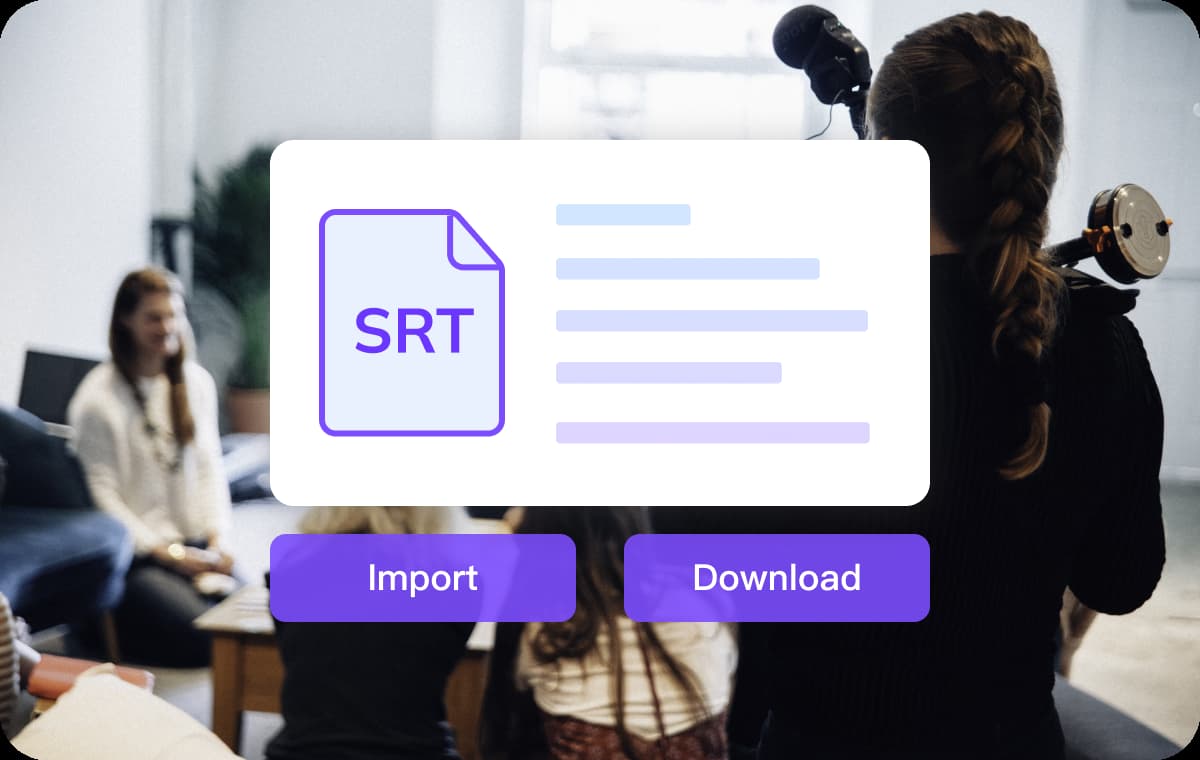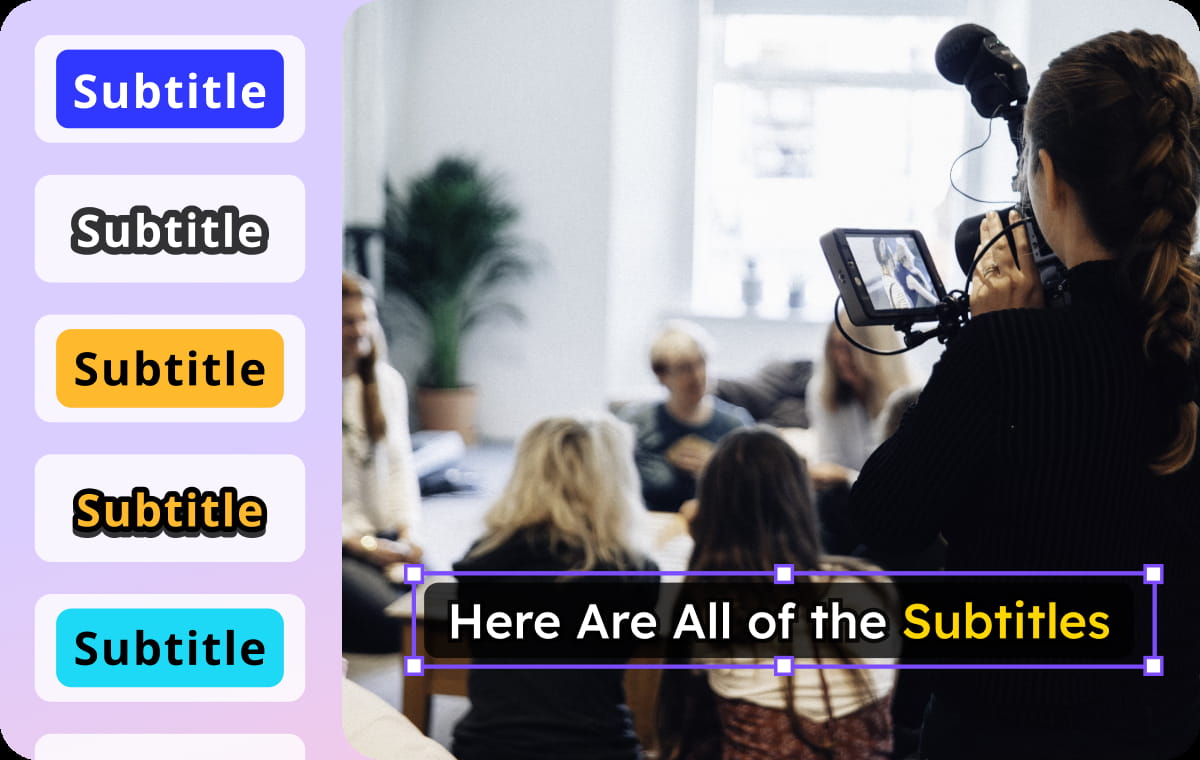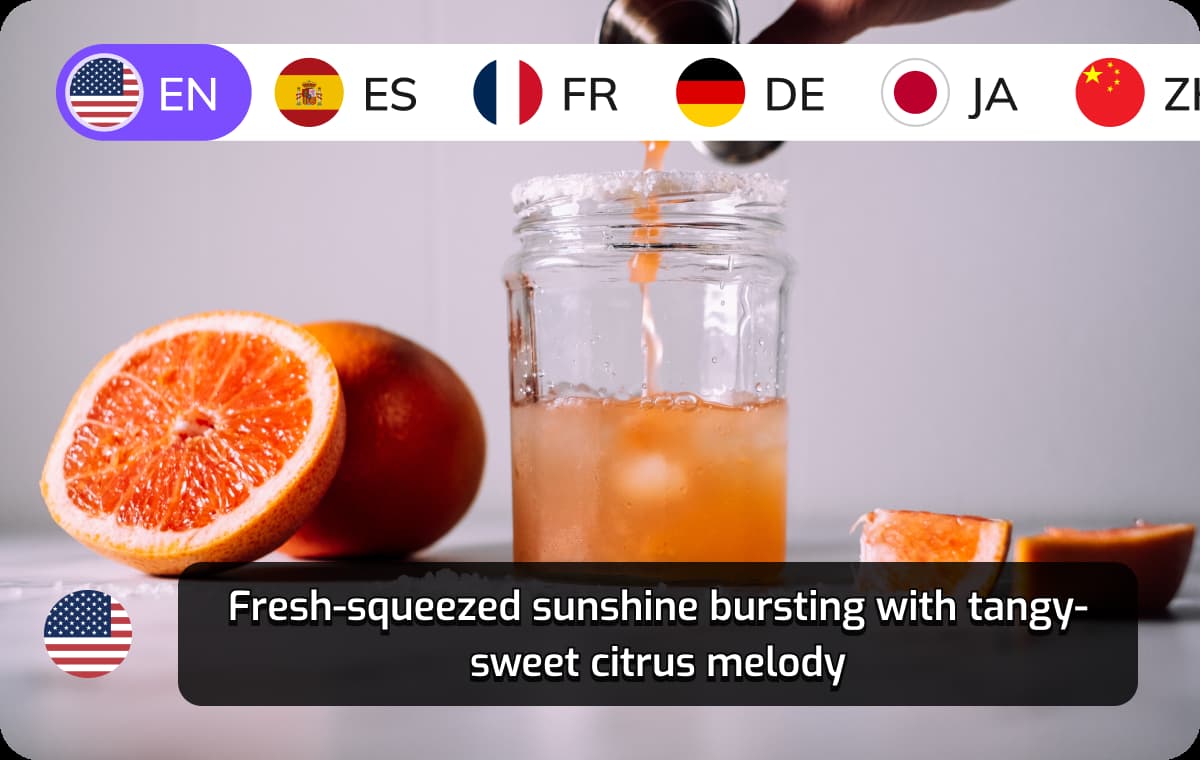SRT to TXT Converter
How SRT to TXT Conversion Works
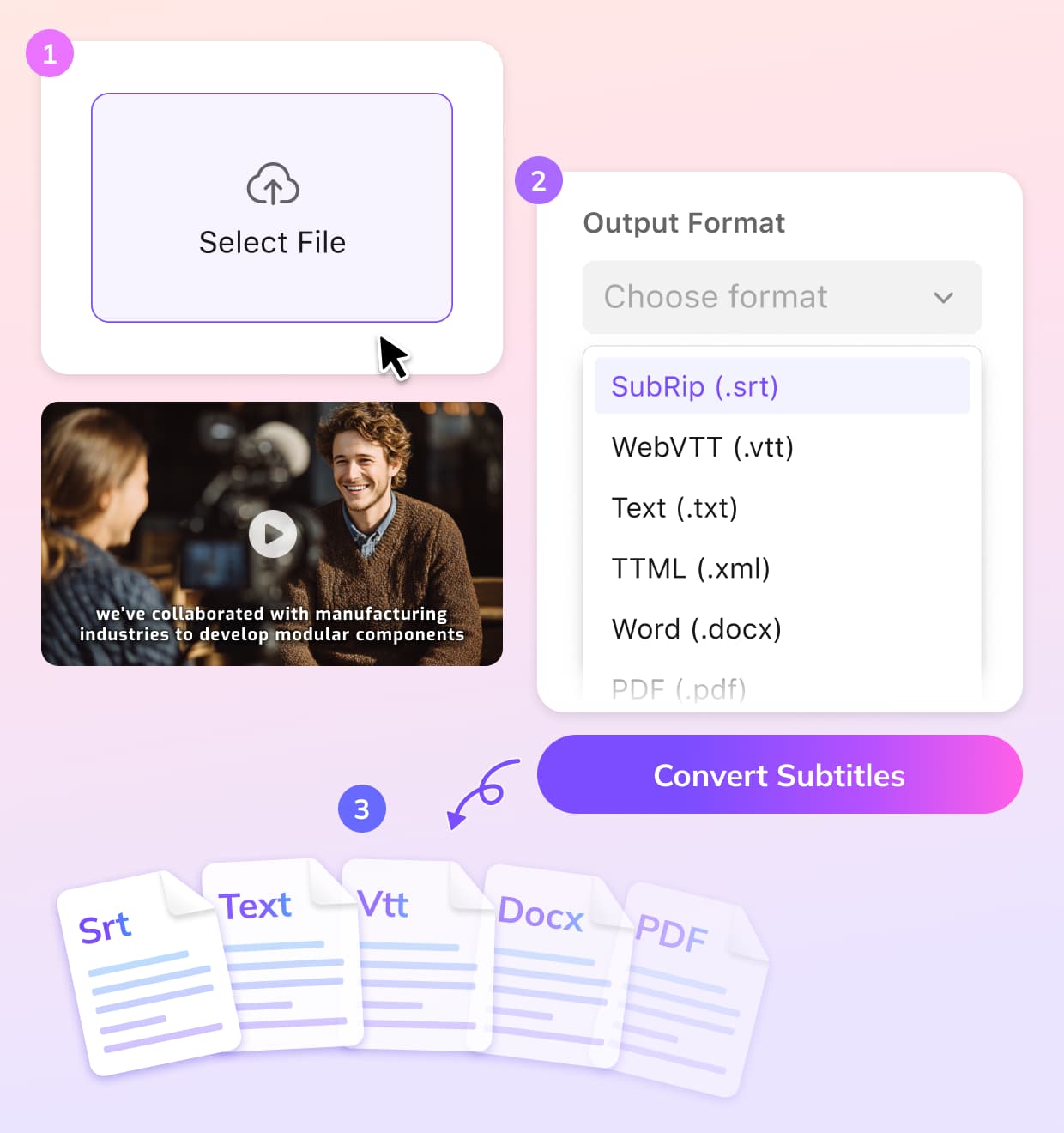
Bring in your SRT
Choose the subtitle file that contains the content you want to extract.
Let the converter clean the file
VMEG reads your SRT, ignores the numeric sequencing and timestamps, and pulls out only the text lines.
Save your plain-text file
Once the cleanup is complete, download the TXT version and continue working with it in your preferred editor.
Why Use VMEG’s SRT to TXT Converter
Fast Online SRT to TXT Conversion
VMEG processes SRT files directly in the browser, creating TXT output within seconds. There’s no software installation or complex steps—simply load your subtitle and extract the text.Even longer subtitle tracks convert smoothly without slowing down your workflow. Perfect for anyone needing quick text extraction for editing, documentation, or script rewriting.
Coming SoonWorks with SRT, TXT, VTT, SBV & More
Beyond SRT to TXT, VMEG handles multiple subtitle formats including VTT, SBV, and TXT conversions. This flexibility helps you work across different platforms and editors without worrying about incompatibility.VMEG normalizes each input file, ensuring the output text is clean and ready to use. Whether you’re processing captions from YouTube, offline editors, or video exports, everything fits easily into your workflow.
Coming SoonNot Just Conversion—Translate Subtitles into 170+ Languages
Once the text is extracted, you can translate it inside VMEG without moving to another tool. The platform supports over 170 languages, allowing you to create multilingual scripts or caption text for global audiences.Translation maintains meaning and tone, making the content suitable for subtitles, dubbing, or documentation. This makes VMEG useful for creators, educators, companies, and anyone needing text outputs in multiple languages.
Coming SoonSRT to TXT Converter Use Cases

Video Creators & Editors
Creators often need a readable text version of their subtitles for caption rewrites, readability checks, or script revisions. A direct SRT to TXT conversion lets them copy, refine, or reorganize dialogue without dealing with timestamps.
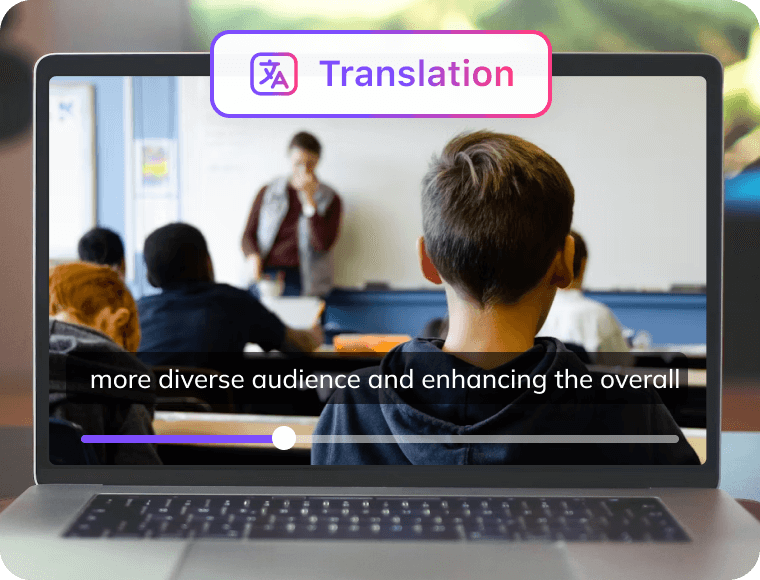
Educators & Academic Teams
Lecture subtitles stored in SRT format are not always convenient for reading or annotation. TXT output makes it easier to add notes, translate course materials, or prepare accessible content.

Companies & Teams
Businesses use TXT versions of subtitles for meeting notes, training transcripts, or multilingual document preparation. Converting SRT to TXT gives teams a uniform text format suitable for editing, archiving, or translation workflows.
SRT to TXT Conversion FAQs
Not yet — this feature is currently in development and will be available soon. You can join the waitlist to get early access once it’s released.
It removes timestamps, line numbers, and formatting from an SRT file, leaving only the spoken text.
Yes—TXT output is ideal for rephrasing captions, writing scripts, or preparing translated versions.
Yes. You can process VTT, SBV, TXT, and additional subtitle types.
You can access conversions using free credits, with no installation or subscription required.
Convert Subtitles to Any Format
Discover More on VMEG
Related Searches
TXT to SRT Converter
Turn any TXT document into a fully formatted SRT subtitle file. Upload your text, let VMEG structure it into timed caption lines, and download an SRT that works across video platforms and editors.
Coming Soon